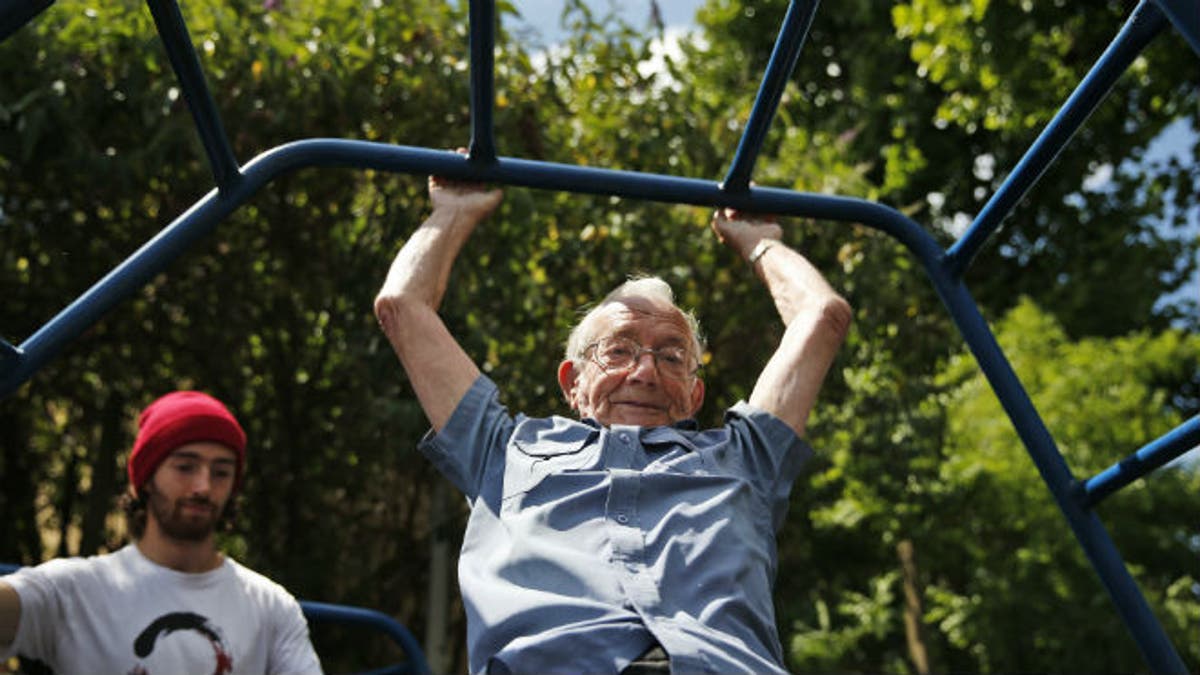
In this Tuesday, June 17, 2014 photo, George Jackson, 85, an army veteran and former boxer swings on monkey bars as he participates at a parkour class for elderly people at a park in south London. (AP Photo/Lefteris Pitarakis)
Scientists are discovering something very peculiar about aging: How we feel about getting old matters. A lot.
In test after test, researchers are finding that if we think about getting older in terms of decline or disability, our health likely will suffer. If, on the other hand, we see aging in terms of opportunity and growth, our bodies respond in kind.
That research holds out the possibility for much healthier aging. But it also points to a very big obstacle: Negative stereotypes about aging are pervasive in America. Even many older adults embrace the idea that getting old is a bad thing—which means they’re doing potentially serious harm to their health without realizing it.
Can we change the way we feel about aging—and improve our prospects for healthier senior years? A growing body of research offers hope.
Psychologists and neuroscientists are identifying strategies that individuals can use to improve their mind-sets about aging, with benefits for their health and well-being. In a recent study, for example, researchers at institutions including the Yale School of Public Health found that older individuals who were subliminally exposed to positive messages about aging showed long-term improvements in self-image, strength and balance. Other recent studies have shown that it’s possible to achieve similar results with tactics that psychologists, cognitive therapists and educators use to treat depression, combat race and gender bias, and break people of harmful habits, such as smoking.
Negative stereotypes about aging “are a public-health issue,” says Becca Levy, an associate professor of epidemiology and psychology at the Yale School of Public Health and lead author of the Yale study. “What people aren’t aware of is that they have the ability to overcome and resist negative stereotypes” and “compensate for the ill effects of automatic ageism.”








































